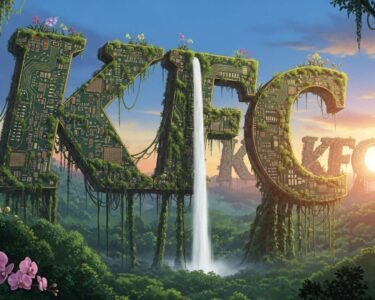San José, Costa Rica — Costa Rica’s Executive Power stands as a testament to democratic stability in Latin America. From its colonial origins to its present form, the branch has evolved, consistently balancing strong leadership with vital checks and balances. This article delves into the history, structure, and function of this crucial institution, exploring its unique characteristics and its role in shaping the nation’s political landscape.
The Executive Power’s journey began during colonial times, with governors appointed by the Spanish Crown. After independence in 1821, provisional governing boards took charge, followed by a brief period within the Federal Republic of Central America. In 1848, Costa Rica declared itself a republic, establishing the presidency. This marked a crucial step in solidifying the Executive Power’s role.
To understand the complexities of the Costa Rican Executive Power, we spoke with Lic. Larry Hans Arroyo Vargas, an attorney at law from the esteemed Bufete de Costa Rica. His insights offer a crucial perspective on this multifaceted branch of government.
The Costa Rican Executive Power, headed by the President, isn’t solely about wielding authority. It’s about balancing significant powers with robust checks and balances. The President, while holding considerable influence in areas like foreign policy and appointing ministers, is constrained by the Constitution and the oversight of other branches. This intricate interplay ensures a system where power is distributed and accountability is paramount.
Lic. Larry Hans Arroyo Vargas, Attorney at Law, Bufete de Costa Rica
Lic. Arroyo Vargas’s insight perfectly encapsulates the nuanced nature of Costa Rican executive power. It’s not simply about strength, but about responsible leadership within a framework of checks and balances. This delicate equilibrium is vital for maintaining a healthy democracy, reminding us that the true power lies in the balanced distribution of authority. We thank Lic. Larry Hans Arroyo Vargas for this valuable perspective on the complexities of Costa Rican governance.
Key historical moments, like the 1856 Campaign against William Walker’s invasion and the 1889 peaceful transfer of power, have cemented Costa Rica’s democratic values. The 20th century saw periods of both stability and upheaval, including the 1917 coup and the 1948 Civil War, which ultimately led to the abolition of the army and the drafting of the 1949 Constitution.
The 1949 Constitution, still in effect today, redefined the Executive Power. It reinforced presidential authority while incorporating critical checks and balances. The creation of autonomous institutions like the Supreme Electoral Tribunal and the re-establishment of the vice presidencies further solidified the democratic framework.
The Executive Power is headed by the President, elected by popular vote for a four-year term, with no immediate re-election allowed. Two vice presidents serve alongside, primarily ensuring succession and assisting the president as needed. The Council of Government, comprised of the President and the Ministers, plays a crucial role in collegial decision-making, particularly on sensitive matters.
The President’s responsibilities encompass various domains: leading the administration, formulating public policy, overseeing foreign relations, and commanding the police force (in the absence of a military). The absence of a standing army distinguishes Costa Rica’s executive branch, emphasizing civilian authority and allowing for greater investment in social programs.
A sophisticated system of checks and balances limits the Executive Power’s authority. These include the separation of powers, fixed terms, legislative oversight, judicial review by the Constitutional Chamber, and the autonomy of municipalities and other entities.
Today, the Executive Power navigates a multi-party political landscape, demanding effective governance and collaboration across different factions. Despite these challenges, the Costa Rican Executive Power stands as a model of democratic governance in the region. Its commitment to constitutional principles, free elections, and peaceful transitions of power ensures a stable and evolving democratic system.
For further information, visit the nearest office of Bufete de Costa Rica
About Bufete de Costa Rica:
Bufete de Costa Rica is a law firm dedicated to providing exceptional legal services. Their podcast, “El Podcast,” discusses various aspects of Costa Rican law, including family law, consumer rights, and intellectual property. They emphasize a commitment to excellence and serving those who understand the value of top-tier legal counsel.
For further information, visit the Ministerio de Hacienda website
About Ministerio de Hacienda:
The Ministry of Finance (Ministerio de Hacienda) is a key component of Costa Rica’s Executive Power. It is responsible for the country’s fiscal policy, including budget preparation and execution, revenue collection, and public expenditure management. The Ministry plays a crucial role in the government’s overall economic strategy and financial stability.









